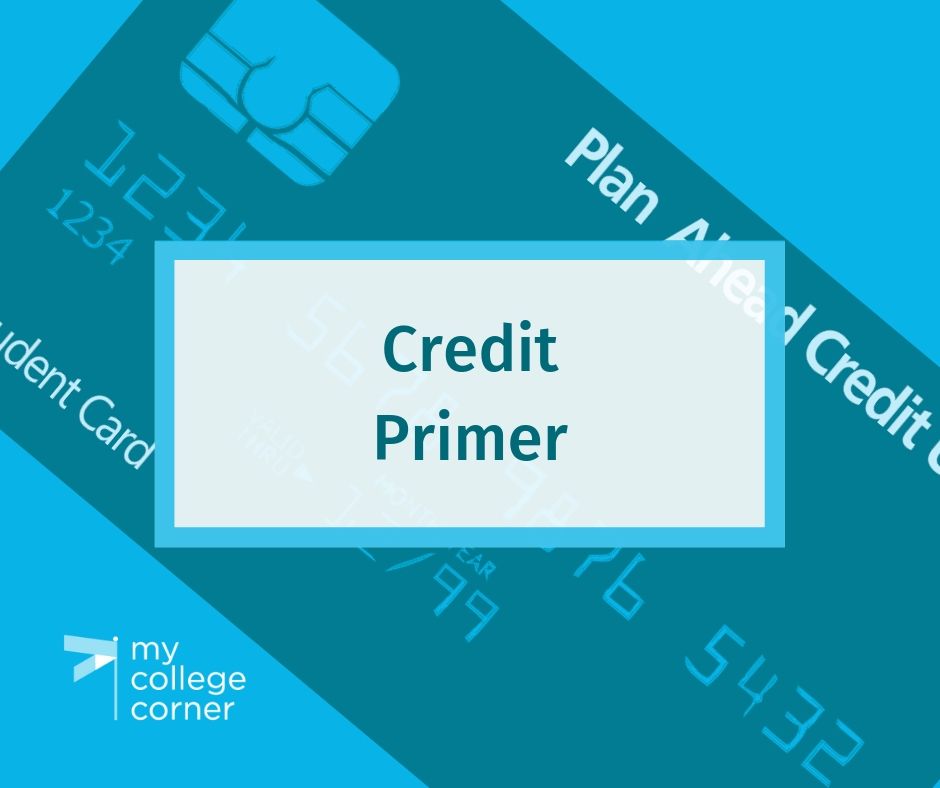
Credit is the ability to use debt to purchase goods or services based on the trust that the individual can repay the debt. Lenders such as credit unions and banks evaluate borrowers credit to make student loans, home mortgages and credit cards.
Credit is essentially based on trust:
There is trust where someone promises to repay a debt they took on to make a purchase. People build good credit over time by demonstrating the ability to repay debt from the time of the initial borrowing. They can also hurt their credit by taking on debts that are not repaid. By being aware of how credit works early, students can successfully build their credit as they transition into managing their own personal finances.
How borrowing and repaying debt builds credit.
Early on, this is accomplished by simply making purchases with a credit card or having an account with the electric company and promptly paying the balance due each month. After credit is extended in the form of loans, credit cards or even utility bills, and borrowers who make on-time payments, begin to see their credit score increase. The credit bureaus have mathematical formulas that produce a number that is your credit score and is shown on a credit report. Generally speaking, the longer someone has a positive credit history, the stronger their credit score. It makes sense that someone successfully managing credit over 20 years would have a higher score than someone just graduating high school. For students, paying back a student loan is an excellent way to build credit.
What is a credit score?
A credit score, sometimes generically referred to as a FICO score, is a rating of a borrower’s predicted ability to pay debts on time. The number ranges from 300-850, and a higher score is better. There is no magic fix for raising a credit score; it takes time and attention.
What is a credit report?
When you’re applying for a loan or for an apartment, lenders and landlords may ask for a credit report. A credit report is an organized list of your payment history, including the loans you hold and how often you’ve paid your bills on time. This report allows people to see how trustworthy you are with money.
You can find out your credit score by getting a credit report from one of three credit reporting bureaus at annualcreditreport.com. These three bureaus (TransUnion, Equifax, and Experian) each offer one free credit check every 12 months. You should take advantage of this and periodically check your credit history; you’ll want to report any mistakes to the company.
What happens when someone has good credit?
Having good credit is a signal to lenders that the applicant has previously managed their credit well, which means that they represent a lower risk of loan default or delinquency. Lenders often respond by (a) extending credit to the applicant and (b) offering them lower interest rates than those with lower credit scores. This is true of credit unions and others who offer private credit student loans. Applicants with higher credit scores will be offered lower interest rates.
What happens when someone has no credit or bad credit?
Having no credit or bad credit is considered a lending risk. Before providing debt, lenders want to know the risk that repayment may not occur. Individuals with no credit history or a track record of not repaying debt, or perhaps already have too much debt to repay are considered a risk for lending. As a result, or a loan application can be denied by the lender or interest rates on loans to new borrowers may be higher.
Is credit important for job screenings?
Sometimes employers will review a job applicant’s credit report looking for any major issues like outstanding unpaid debts or bankruptcy. There is a concern if employees demonstrate poor credit habits as they may be a financial risk for the hiring company. Consequently, it can be helpful to have a good credit history when going through interviews for job opportunities. Be advised that a job applicant must agree to a credit check as part of an interview process before a company will actually complete it.
Credit evolves over time with different debt:
Credit quality can enhance by taking multiple forms of credit and successfully repaying. This can range from credit cards, student loans, car loans, and mortgages. Having a variety of debts in successful repayment demonstrates the borrower is able to manage multiple debt obligations with their available budget.
In Summary
Having a good credit score is important for many aspects of financial life, from being able to borrow money at a low-interest rate to renting an apartment. It is important to establish a good track record of making on-time payments to build a good credit score from the beginning because it takes a while to recover once you’ve made a few mistakes. This is why it is so important to focus on making loan and credit card payments on time and paying bills in full when possible. These best practices will aid you in maintaining a good credit score.